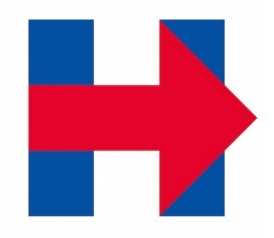
The chairman of Hillary Clinton’s presidential campaign, John Podesta, published an op-ed in The Washington Post criticizing the FBI for its handling of Clinton’s email investigation and the hacking of his emails as well as the emails of the Democratic National Committee. Read Podesta’s full op-ed below:
Something is deeply broken at the FBI
By: John Podesta
December 15, 2016
The more we learn about the Russian plot to sabotage Hillary Clinton’s campaign and elect Donald Trump, and the failure of the FBI to adequately respond, the more shocking it gets. The former acting director of the CIA has called the Russian cyberattack “the political equivalent of 9/11.” Just as after the real 9/11, we need a robust, independent investigation into what went wrong inside the government and how to better protect our country in the future.
As the former chair of the Clinton campaign and a direct target of Russian hacking, I understand just how serious this is. So I was surprised to read in the New York Times that when the FBI discovered the Russian attack in September 2015, it failed to send even a single agent to warn senior Democratic National Committee officials. Instead, messages were left with the DNC IT “help desk.” As a former head of the FBI cyber division told the Times, this is a baffling decision: “We are not talking about an office that is in the middle of the woods of Montana.”
What takes this from baffling to downright infuriating is that at nearly the exact same time that no one at the FBI could be bothered to drive 10 minutes to raise the alarm at DNC headquarters, two agents accompanied by attorneys from the Justice Department were in Denver visiting a tech firm that had helped maintain Clinton’s email server.
This trip was part of what FBI Director James B. Comey described as a “painstaking” investigation of Clinton’s emails, “requiring thousands of hours of effort” from dozens of agents who conducted at least 80 interviews and reviewed thousands of pages of documents. Of course, as Comey himself concluded, in the end, there was no case; it was not even a close call.
Comparing the FBI’s massive response to the overblown email scandal with the seemingly lackadaisical response to the very real Russian plot to subvert a national election shows that something is deeply broken at the FBI.
Comey justified his handling of the email case by citing “intense public interest.” He felt so strongly that he broke long-established precedent and disregarded strong guidance from the Justice Department with his infamous letter just 11 days before the election. Yet he refused to join the rest of the intelligence community in a statement about the Russian cyberattack because he reportedly didn’t want to appear “political.” And both before and after the election, the FBI has refused to say whether it is investigating Trump’s ties to Russia.
There are now reports that Vladimir Putin personally directed the covert campaign to elect Trump. So are teams of FBI agents busy looking into the reported meeting in Moscow this summer between Carter Page, a Trump foreign policy adviser, and the Putin aide in charge of Russian intelligence on the U.S. election? What about evidence that Roger Stone was in contact with WikiLeaks and knew in advance that my hacked emails were about to be leaked? Are thousands of FBI person-hours being devoted to uncovering Trump’s tangled web of debts and business deals with foreign entities in Russia and elsewhere?
Meanwhile, House Republicans who had an insatiable appetite for investigating Clinton have been resistant to probing deeply into Russia’s efforts to swing the election to Trump. The media, by gleefully publishing the gossipy fruits of Russian hacks, became what the Times itself calls “a de facto instrument of Russian intelligence.”
But the FBI’s role is particularly troubling because of its power and responsibility — and because this is part of a trend. The Justice Department’s Inspector General issued a damning report this summer about the FBI’s failure to prioritize cyberthreats more broadly.
The election is over and the damage is done, but the threat from Russia and other potential aggressors remains urgent and demands a serious and sustained response.
First, the Obama administration should quickly declassify as much as possible concerning what is known about the Russian hack, as requested by seven Democratic members of the Senate Intelligence Committee.
Second, the administration should brief members of the electoral college on the extent and manner of Russia’s interference in our election before they vote on Dec. 19, as requested by a bipartisan group of electors.
Third, Congress should authorize a far-reaching, bipartisan independent investigation modeled on the 9/11 Commission. The public deserves to know exactly what happened, why and what can be done to prevent future attacks. Reps. Eric Swalwell (D-Calif.) and Elijah E. Cummings (D-Md.) have introduced legislation to authorize such an investigation.
Finally, Congress should more vigorously exercise its oversight to determine why the FBI responded overzealously in the Clinton case and insufficiently in the Russian case. The FBI should also clarify whether there is an ongoing investigation into Trump, his associates and their ties to Russia. If ever there were a case of “intense public interest,” this is it. What’s broken in the FBI must be fixed and quickly.
For all the latest, follow our Scheduled Events page and follow Clinton on Twitter, Facebook, YouTube, and Instagram.
News Source: The Washington Post


